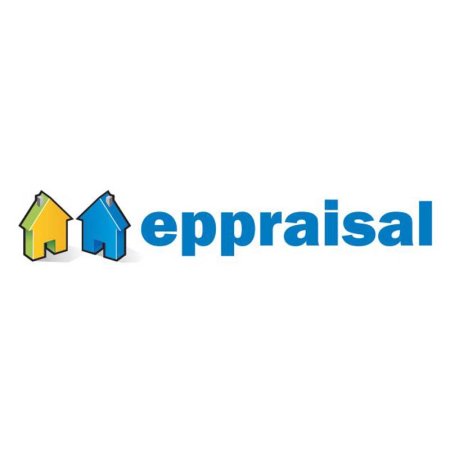
We may earn revenue from the products available on this page and participate in affiliate programs. Learn More ›
You may be on the verge of making an important financial decision about your home. Perhaps you are about to sell it because your family situation has changed significantly. Or maybe you want to refinance your home to get a better mortgage rate. So where do you begin? One of the best places to start is by determining your home value. Typically, you will get this information from a local real estate agent if you sell your home. If you’re refinancing, this information will come from a certified appraiser.
But if you’re wondering, “What’s my house worth?” it’s simple to get an estimate without having to contact one of these professionals. You can use an online property value estimator to get started. Unfortunately, not all house value estimator sites provide the same values, so this guide will explore some of the best home estimator sites that you can rely on.
- BEST OVERALL: Zillow
- RUNNER-UP: Redfin
- BEST FOR SELLING: Realtor.com
- BEST FOR LOAN APPLICATIONS: Chase
- ALSO CONSIDER: Eppraisal

What to Consider When Choosing the Best Home Value Estimator for You
Not all home value estimators are created equal. Each site uses a different set of criteria and varying algorithms to perform a valuation. Accuracy is critical, but there are some other key factors to remember when you’re looking to answer the question of “What’s my home worth?”
Estimate Purpose
Some of the most common reasons a homeowner would use a home value estimator site is when selling or buying a home, considering a loan, or refinancing. Home value estimators can return results for homes on or off the market. Some estimators will return only a home’s valuation, while others will include more information about a home, including its acreage, square footage, and the number of rooms.
Market Value vs. Appraised Value
When using home value estimator sites, consider that these values aren’t market values. Market value is the value of a house at the time it’s placed on the market; it’s the price a buyer is willing to pay for a person’s property based on perceived value. This perceived value could be higher or lower than the market value. The values on home value estimator sites aren’t appraisal values, either. An appraiser determines the home’s appraised value based on various factors, mainly how much homes in the neighborhood have sold for recently. Home value estimator sites may consider the market and appraised values along with other values to arrive at their estimates. Still, valuations from these sites are only estimates and could change due to several variables.
Factors in Determining Home Value
So how exactly do these sites determine home value? Every site pulls information from various sources. These sources include MLS (multiple listing services), county records, and comparable homes in the area.
Another way to determine a home’s value is by seeking the assistance of a real estate agent who will prepare a comparative market analysis. This analysis is based on other properties recently sold in the area. Still another way to determine home value is by soliciting the help of a certified appraiser. An appraiser will do a much more hands-on home valuation for a fee. The cost of an appraisal may typically be $300 to $400. However, for much larger properties, it can cost over $1,000. Because home value estimator sites are free, they can be a beneficial first step before paying for an appraiser’s services.
Accuracy and Median Error Rate
Accuracy is often an issue when using these value estimator sites. Depending on whether the property is on or off the market, some sites may be off by as much as 1 to 10 percent. Homes that are on the market or were recently sold and those with updated public information will have more accurate estimates. Unfortunately, recent changes, such as renovations to the home, may not be calculated into the valuation. If you’ve done a major remodeling job, like adding a bedroom or bathroom, but haven’t updated the public records, it won’t factor into the valuation either. These discrepancies could yield misleading results when a user plugs in their address. In some cases, it’s a good idea to use a remodeling estimator in addition to a home value estimator to determine the value of a home.
Update Frequency
When using a home value estimator, keep in mind when the site updates information. The value of a property may increase over time, especially if there have been recent renovations or significant changes within the neighborhood. Also, a home could be losing value due to its being outdated, poor curb appeal, or low property tax valuation. High-traffic, reputable services that pull from robust listing sites will typically update more regularly; these sites may display the last update time. Depending on its algorithms, a home value estimator site may update daily, weekly, monthly, or at other intervals.
Privacy
Some house details are public information, so a user can plug in any address and determine information about a property. The results may yield the value of the home and a few other essential details about the property. However, if users want to get very detailed information on a particular property, this information generally isn’t available to the public. A site will allow access to this information if a user claims a property by setting up an account. The user can log in and edit the available data with an active account to provide much more accurate results with an active account.
Additional Tools
In addition to a home value estimator, some sites may provide additional tools for the user. For example, some sites allow users to search for or list a home for sale. Some may also offer a glossary of mortgage terms, educational resources, and credit cards. Not only do these sites provide tools for people who want to sell or refinance their homes, but if a homeowner prefers to become a landlord and rent their property, some sites also provide tools to help advertise or manage the property. Depending on which home value estimator a user chooses, there could be various other products that the site wants the user to consider.
Our Top Picks
Those wanting a sneak peek into how much their home is worth will find some of the most accurate results with the following sites.
Best Overall
Zillow
Pros
- Relatively low median error rate of 1.9 percent for on-market homes
- Evolving proprietary algorithm and robust listing database
- Features include home equity estimate and adjustable sales proceeds
- Home value comparison tool
Cons
- Interface can be dense with information and difficult to navigate
- Median error rate: 1.9% on-market, 6.9% off-market
- Off-market 4 bd, 3 ba in NJ: $1,190,700 ($1,100,000–$1,310,000)
- Off-market 4 bd, 3 ba in MD: $707,600 ($672,000–$743,000)
- On-market 3 bd, 3 ba in OH: $300,001
- On-market 3 bd, 1 ba in CA: $598,200
Why It Made the Cut: Zillow’s robust database with many listings and evolving algorithms makes it one of the most accurate site estimators available. Zillow boasts that it is one of the most frequented real estate websites in the United States. So it should come as no surprise that its highly accurate home value estimator is a tool that adds to its popularity. It has a very low median error rate for on-market homes of 1.9 percent and off-market homes of 6.9 percent. Zillow also has the most extensive database and an evolving proprietary algorithm, making its estimates, known as Zestimates, more reliable than those of most other sites. Additionally, Zillow has handy tools for homeowners to sell their homes. The only drawback is the user interface for homeowners can be dense with information, making it hard to explore. But it does deliver many helpful tools for homeowners, including home equity estimates and adjustable sales proceeds. A home value comparison tool also allows users to select specific homes in the area and directly compare specs and valuations. Users can feel confident that this platform will provide accurate home values.
Runner-Up
Redfin
Pros
- Relatively low median error rate of 6.74 percent for off-market homes
- Recent home listings displayed with map
- Users can request a free comprehensive analysis from a Redfin agent
Cons
- Valuations for on-market homes skew high relative to the average
- Median error rate: 2.24% on-market, 6.74% off-market
- Off-market 4 bd, 3 ba in NJ: $1,288,670
- Off-market 4 bd, 3 ba in MD: $765,882
- On-market 3 bd, 3 ba in OH: $300,384
- On-market 3 bd, 1 ba in CA: $653,265
Why It Made the Cut: Redfin provides daily updates on home information. Since it is a real estate brokerage, it gathers information on properties from reliable sources. Based in Seattle, Redfin is a full-service real estate brokerage that provides a pipeline for moving potential customers from thinking about selling a home right through the process of selling it with one of their experienced agents. Its sources are reliable, with a median error rate of 2.24 percent for on-market homes and 6.74 percent for off-market homes. And suppose a user is happy with the estimate: In that case, they can proceed with the selling process by talking to one of Redfin’s agents, who will provide a free comparative market analysis for a more accurate home valuation. The site is easy to use, and recent home listings are displayed with a map so users have a visual aid when looking at sales trends. Valuations can skew high for on-market homes, but the estimator is one of the most accurate available, and Redfin is still one of the best home value estimator sites.
Best for Selling
Realtor.com
Pros
- Site uses multiple third-party automated valuations
- Median listing price, days on market, and other resources allow homeowners to track local trends
- Homeowners can assess local market trends
Cons
- Some valuations for on-market homes can be markedly lower than average
- Off-market property information only available to owner after listing is claimed
- Median error rate: N/A
- Off-market 4 bd, 3 ba in NJ: $1,000,000
- Off-market 4 bd, 3 ba in MD: $666,500
- On-market 3 bd, 3 ba in OH: $140,400
- On-market 3 bd, 1 ba in CA: $577,900
Why It Made the Cut: Realtor.com has the broadest range of tools available for homeowners, and the features allow homeowners to track local trends, which makes this site particularly useful for someone looking to sell their home. Many people know Realtor.com for its reliable information about homes for sale, and it’s platform for keeping property managers organized. It also has a helpful home value estimator that pulls data from various third-party automated valuations. Users can access a general value estimate, or homeowners can get more in-depth info about their property using the “claim your home” feature. This information includes the median listing price and the median number of days on the market, which can help track local trends and allow a homeowner to make more knowledgeable decisions when selling. This information is only available to a home’s owner, but it does serve as a privacy measure to keep this information confidential. Some of the estimates for on-market homes were lower than average, but overall, Realtor.com is a great resource with tools that homeowners can’t find anywhere else.
Best for Loan Applications
Chase
Pros
- Users can update their home’s details for a more accurate valuation
- Users can apply for loan prequalification from Chase using estimate information
Cons
- Valuation may be relatively low
- Some on-market properties may not yield estimates
- Median error rate: N/A
- Off-market 4 bd, 3 ba in NJ: $976,000
- Off-market 4 bd, 3 ba in MD: $661,100
- On-market 3 bd, 3 ba in OH: N/A
- On-market 3 bd, 1 ba in CA: $571,700
Why It Made the Cut: Chase allows site visitors to use their home estimate to prequalify for loans, which is helpful for homeowners looking to get a home improvement loan or second mortgage. Chase has made a reputation for itself as one of the leading banking institutions. As a mortgage lender, it has a home value estimator to help users prequalify for a loan. Its platform also allows users to update their home’s information, including the number of bedrooms and bathrooms, making the valuation much more accurate. Some on-market properties may not yield estimates, especially if the property is newer, and the available estimates may be lower than those from other home value estimator sites. But if a homeowner is looking for a one-stop-shop for a home value estimate and a streamlined way to prequalify for loans, Chase’s site comes out on top.
Also Consider
Eppraisal
Pros
- On-page comparison of Eppraisal estimate to Zillow Zestimate
- Current mortgage and loan rates from multiple lenders available
Cons
- Some on-market properties may not be eligible for estimates
- Interface can be somewhat user-unfriendly
- Median error rate: N/A
- Off-market 4 bd, 3 ba in NJ: $1,140,000–$1,180,000
- Off-market 4 bd, 3 ba in MD: $780,000–$812,000
- On-market 3 bd, 3 ba in OH: N/A
- On-market 3 bd, 1 ba in CA: $597,000–$609,000
Why It Made the Cut: Eppraisal not only shows its users their estimates, which are compiled from reliable public data, but it also allows users to see other top competitor site estimates, which is helpful for a quick comparison. Eppraisal is an industry leader with its automated home valuation model. Eppraisal compiles its estimates using public information and recent comparable properties (also called “comps”). It allows users to have a side-by-side comparison to other estimator sites, including Zillow’s Zestimate. It also provides current mortgage and loan rates from multiple vendors. Unfortunately, some it may be unable to compile estimates for some on-market properties, particularly if the home is newer. Eppraisal’s website can be rather hard to navigate, and users are prompted to fill out their complete address (most other sites have an auto-fill function). However, it does offer plenty of resources for homeowners for buying, selling, and financing, and the site allows users to subscribe and access exclusive member content.
Our Verdict
We chose Zillow as a top option because it has a database full of listings that yields estimates with a 1.9-percent on-market and a 6.9-percent off-market median error rate. Redfin is a solid runner-up choice, with a 2.24-percent median error rate for on-market homes and a 6.74-percent rate for off-market homes and an easy way to get a free comprehensive analysis.
How We Chose the Best Home Value Estimator Sites
We evaluated dozens of free home value estimator sites. We paid particular attention to those associated with an established online real estate brand. Although no home estimator site is 100 percent accurate, we chose the most accurate ones that returned low median error rates. For those that did not have a median error rate, we compared the estimates for their market and off-market homes to the results of our top two choices. We also preferred home value estimator sites that offered other valuable tools to customers in the home buying and selling processes.
Before You Use One of the Best Home Value Estimator Sites
Keep in mind that these home value estimator sites aren’t 100 percent accurate—they merely serve as a jumping-off point before taking a home to market or considering a loan. Many variables go into estimating a home’s value, and ultimately, real estate values can shift daily. With that being said, a user may want to get estimates from several of the top sites. If a homeowner has recently renovated or remodeled their home, the estimate may not reflect these updates. Therefore, a homeowner will have to use additional tools such as a home improvement calculator to help determine the return on investment (ROI) of their renovations. Keep in mind that not all upgrades will improve the home’s value, and those that do are unlikely to yield a 100 percent return on investment. Another thing to remember is that estimates from home value estimator sites most likely won’t be used to help list a home or refinance it. A more accurate assessment is needed, such as a real estate agent’s comprehensive analysis or an appraisal.
Cost of Using One of the Best Home Value Estimator Sites
One of the best things about home value estimator sites is that most don’t charge a fee to determine a home’s value. The user only needs to go to the site, plug in their address, and continue to the results. Homeowners can make preliminary decisions without paying a professional, such as an appraiser, hundreds of dollars for a home valuation—at least not initially. For instance, if a home value estimator reveals that a home’s value is substantially lower than the homeowner thought, the user may conclude that now isn’t a good time to sell or refinance—and they didn’t have to invest any money to come to this conclusion.
The Advantages of Using One of the Best Home Value Estimator Sites
Home value estimator sites will never be 100 percent accurate. This is because these sites each use various methods to compile their values. But just because they aren’t 100 percent accurate doesn’t mean that they aren’t helpful. For instance, a user may want to know the value of their home before attempting to refinance or sell it without having an appraiser assess it. Appraisals can be very costly, running upward of thousands of dollars depending on the property’s size. So before putting money down, it would be a good idea to see how much the home is worth. Home value estimator sites give a user a ballpark average of a home’s value.
- The estimate is immediate.
- A home value estimator is a free tool.
- Since a home value estimate is free, users can get several estimates and compare them.
FAQs
If you’re reading this guide, you’re probably thinking, “What is my home worth?” So much goes into figuring out what your house is worth. Here are some of the most common questions people ask related to, “What’s the value of my home?”
Q. Should I use a home value estimator when refinancing?
“How much is my home worth?” is a common question homeowners ask when looking to refinance. However, you will need an accurate appraisal from a certified appraiser when refinancing your home. An appraiser’s work usually involves comparing your property with similar properties in your area that have recently sold and examining the house in person.
Q. Should I get an appraisal before listing my home for sale?
No. An appraisal should happen much later in the process, and the buyer typically requests and pays for it as part of the loan process.
Q. How should I estimate home value after renovation?
Using a home’s value estimator can be tricky because these sites don’t include renovations you may have recently made to your home. To get an accurate estimate of your home value after renovation, you should consider using an ARV (after repair value) tool. Such a tool helps determine how much ROI (return on investment) your home improvement projects will yield.
Q. How can l increase my home’s value?
There are numerous ways you can increase your home value. A few of the best ways are to upgrade your kitchen and bathroom, apply a fresh coat of paint, spruce up your landscaping, and upgrade to high-quality finishes.
Q. What is the assessed value of a home?
The assessed value is an annual estimation of your home’s worth, typically determined by a local municipal property assessor.
Q. Why do different home value estimators give different estimates?
Each home value estimator relies on criteria from different sources. These sources include MLS (multiple listing services), tax assessor records, real estate brokerages, listing prices, and more. Home value estimators will use a combination of these sources to arrive at their estimates, all of which yield different results.
Sources: Opendoor








